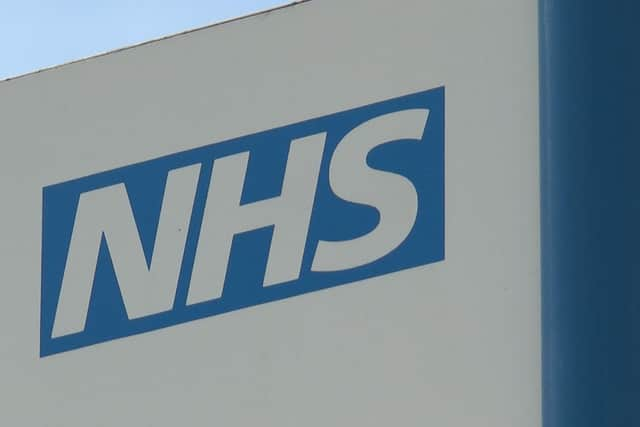Lancashire is one of 21 areas of England with a "cancer hub" to treat patients during the coronavirus crisis
and live on Freeview channel 276
Twenty-one areas of England have established so-called "cancer hubs" to treat patients in designated virus-free centres.
However, the Local Democracy Reporting Service (LDRS) has learned that, unlike some other parts of the country, which have nominated single sites for cancer patients to attend, Lancashire is utilising a series of "mini-hubs" at independent hospitals across the county.
Advertisement
Hide AdAdvertisement
Hide AdThe NHS Midlands and Lancashire Commissioning Support Unit said that a “significant amount” of non-complex cancer surgery was already being carried out in partnership with private providers Spire Healthcare and Ramsay Healthcare. Last month, the government announced a deal to enlist the entire capacity of the private hospital network to provide both Covid and non-Covid services ‘at cost’ until at least June.


Guidance issued when coronavirus started to spread indicated that essential cancer surgery and treatment such as chemotherapy and radiotherapy was expected to continue, even as other services were scaled back - unless the risk of being treated during the outbreak outweighed the benefit for an individual patient.
NHS England has this week written to all trusts asking them to “release and redeploy” some of the space reserved for the surge seen in Covid-19 patients, to allow high priority services to return to pre-pandemic levels over the next six weeks. This includes treatment for cancer, cardiovascular disease and stroke - but the letter stresses that infection prevention and control must be the "guiding principle".
Hospitals have also been told to consider whether they can restart “at least some” non-urgent, pre-planned procedures. NHS England ordered that these be brought to a stop over several weeks up to mid-April in order to cope with the impact of Covid-19 on hospital capacity.
Advertisement
Hide AdAdvertisement
Hide AdBut trusts have been warned that they should retain their ability to reinstate additional Covid capacity should it be needed. Across England, the number of patients with the virus being treated in hospital has fallen by around 5,000 over the past fortnight.
Bed occupancy figures for Covid patients are not published at a Lancashire level, but the county’s director of public health, Dr. Sakthi Karunanithi, last week said that cases of coronavirus admitted to hospital have begun to show signs of “plateauing” – although he added that Lancashire had probably not yet its reached its peak.
The new NHS guidance sates that cancer "referrals and diagnostics (including direct access diagnostics available to GPs) and treatment must be brought back to pre-pandemic levels at the earliest opportunity to minimise potential harm, and to reduce the scale of the post-pandemic surge in demand". It also calls for trusts to take "urgent action" to receive patients referred with suspected cancer within the two-week target time.
Anybody with symptoms of cancer is being urged to seek medical help, after figures published earlier this week from a study by University College London suggested that there had been an average 76 percent drop in attendence for cancer referral appointments.
Advertisement
Hide AdAdvertisement
Hide AdThe LDRS approached all NHS trusts in Lancashire regarding their response to the new guidance about increasing non-Covid activity.
University Hospitals of Morecambe Bay NHS Foundation Trust, Blackpool Teaching Hospitals NHS Trust and East Lancashire Hospitals NHS Trust issued a joint statement from Kevin McGee, chief executive of the latter two organisations.
He said: “Hospital services have been working together across Lancashire and South Cumbria to respond to the coronavirus pandemic, while at the same time ensuring that essential and urgent care in areas such as cancer can continue.
“In all hospitals, we are taking strict precautions to ensure both staff and patients remain safe. If you do have to go to the hospital, please be assured that it is safe – NHS staff have worked hard to put in place measures which will allow people to access care safely – such as splitting services into Covid and non-Covid zones or providing telephone and video consultations in some of our outpatient departments.
“One thing that we can be certain of is that if people put off seeking urgent medical help when they are having stroke or heart attack symptoms, they put their life at risk,” Mr. McGee added.